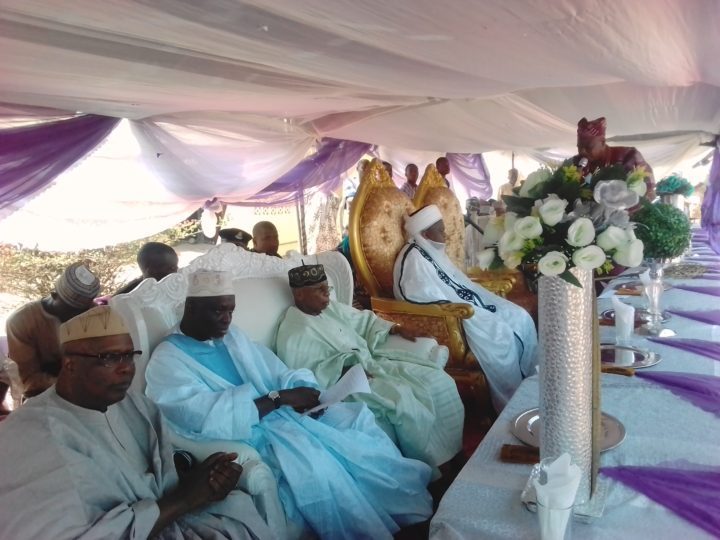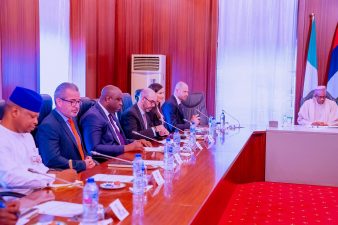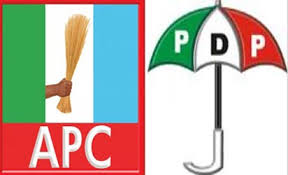By BASHIR ADEFAKA
Acknowledging the excruciating effects of the current economic reality and the devastating impacts of fuel subsidy removal on Nigerians, the Nigerian Supreme Council for Islamic Affairs (NSCIA) says it has devised a means by which to cushion the effects among its vulnerable members.
This was stated in a release jointly signed by His Eminence Alhaji Muhammad Sa’ad Abubakar, the Sultan of Sokoto and President-General of the NSCIA and Professor Is-haq Oloyede, who is the NSCIA Secretary-General, dated 9th Rajab 1445 AH equivalent to 21st January 2024 and copy of which was handed to The DEFENDER on Sunday.
The Council, which expressed its deep concerns over the situation, said it was aware that the challenges were overwhelming as those who were just recovering from the aftershocks of terrorism and insecurity were now confronted with economic challenges to the extent that meeting basic needs had become a luxury for the majority of Muslims.
It, however, gave details of the steps it had taken towards ameliorating the challenges confronting those vulnerable members within the Muslim without prejudice to efforts being made at the government levels.
“For many households, survival is a daily battle as the number of the poor keeps increasing within the ummah.
“As part of providing for the needs of the Muslim Ummah, the Council had established the Mission for Education, Society and Health (MESH) in 2016 and the Mission has been doing much in supporting the rationale for its existence. MESH since its establishment has been actively and proactively intervening in the educational, social and health concerns of the Ummah.
“While MESH continues to do its work, the Ummah Care Initiative is conceived as an emergency palliative intervention to cushion the effects of the current economic hardship on the vulnerable members of the Muslim ummah. This is without prejudice to the efforts of the Federal and State Governments in making palliatives available to Nigerians. Meanwhile, the Council is aware that some states are discriminating against Muslims through excluding them from such interventions. A case study of such is Plateau state.
“Given this emergency situation, the Initiative will mobilise resources across the country for the benefit of the socially excluded members of the Muslim community. After the exercise, the Initiative will dissolve into MESH which will continue with its generic work of alleviating the suffering of the Nigerian Muslims, giving hope to the poor and providing the basic needs to the most vulnerable,” the NSCIA said.
Objectives
The specific objectives of the Ummah Care Initiative are to: 1. offer psycho-social support to Muslims facing natural and manmade disasters; 2. advocate state response to the economic challenges that face the Muslim ummah at the moment; 3. give religious and educational guidance to the poor, the weak and the socially excluded so that they will cope better with life; 4. serve as the link between the rich and the poor in order to make the former fulfill their obligations on the latter in line with the Islamic provisions that prescribe rights and responsibilities for Muslims; and 5. cooperate with other stakeholders, governmental and non-governmental, in advancing the cause of the Initiative.
Strategies
The Council did not fail to reveal the strategy it had mapped out towards effectively executing the Innitiative.
“The strategy of executing this Initiative is based on a five-pronged approach of awareness creation, leadership structure, resource mobilisation, active volunteering and project execution.
“Awareness Creation: This is the sensitisation of governments across levels and the people at large about the Initiative with a view to enlisting their support. As human beings by nature oppose what they do not understand, awareness creation through the mimbars, physical meetings, courtesy visits as well as traditional and social media will be done to market and project the Initiative.
“Leadership Structure: Every state chapter will be coordinated by the State Council for Islamic Affairs or its equivalent while the President-General of the Nigerian Supreme Council for Islamic Affairs (NSCIA) will be the Coordinator-General. Each local government is also to have an Organiser through the leadership of the Muslim community there in liaison with the State Coordinator.
“Resource Mobilisation: Governments, funding agencies and philanthropists at the national, state and local levels are to be mobilised for resources. At the state level, Muslim organisations, especially Muslim Students’ Society of Nigeria (MSSN), Muslim Corpers Association of Nigeria (MCAN), National Council of Muslim Youth Organisations (NACOMYO) and Federation of Muslim Women Associations of Nigeria (FOMWAN), as well as Imams, Ulama and Muslim professionals, will approach government for support.
“They will also seek support from philanthropists and donors within the state. The resources mobilised within each state will then be distributed within the state and the local government areas, not elsewhere. Only the reports of the distribution will be sent to the Coordinator-General’s Office at the NSCIA Headquarters for records purposes.
“Active Volunteering: Muslim organisations are expected to imbue the spirit of sacrifice and volunteering in their members so that only those who are impassioned by humanitarian service will be brought on board. Training programmes will be organised at the levels of organisations to ensure that only the right volunteers with the right skills sets will to be selected for the Initiative at local and state levels across the country.
“Project Execution: Received donations will be distributed within the local governments and communities within the states.”
Activities
The activities of the Initiative, according to the statement released on Sunday in Abuja from the Office of the NSCIA President-General, will include: 1. collection of donations in cash and materials; 2. provision of food, water, clothing and other necessary facilities to the needy; and 3. sensitisation of the public on the challenges facing the vulnerable, especially the weak, the sick and the poor.
Values
This Ummah Care Initiative, the release stated, is based on the values underscored by the Qur’anic verse: “Say, ‘Indeed, my prayer, my rites of sacrifice, my living and my dying are for Allah, the Lord of the worlds’” (Q6: 162).
It Council said, “Thus, the values of this Initiative are Sincerity, Sacrifice, Service, Success and Submission. These will be the guiding principles that undergird the entire Initiative from the beginning to the end.
“There will be sincerity of purpose on the part of donors and beneficiaries; there will be sacrifice of resources for the sake of Allah as there will be a sense of service on the part of the volunteers.
“The whole Initiative is to achieve success in this world and in the hereafter on the basis of total submission to the dictates of Allah,” it explained.
Admonition to believers
“In summary, this life is a trial for Muslims and Muslims should understand that they cannot claim to be believers until they are subjected to trials (Q29: 2). Whatever challenges Muslims may be facing are for a divine purpose for which Allah has prepared adequate compensation sooner or later.
“Nevertheless, as Muslims who are like a building the various parts of which strengthen others, NSCIA is poised to strengthen Muslims with support and assistance, especially at their critical points of need. Even if it is not enough, it is a demonstration that we care about one another and if there were more means, Muslims would still do better.
“The donation of #50 million by a Muslim brother through which MESH is currently executing projects that benefit the Ummah is welcome and such contributions are needed through UCI to address this state of economic emergency.
“The Council believes that through mutual cooperation and collective action, the challenges facing us can be overcome. Together, the Council believes that we can attain the goodness of this life and the hereafter if we empathise more with one another.
“Muslims are enjoined to care for their brothers and sisters by giving the Initiative their unflinching support. Success is certain where sincerity and sacrifice are held sacrosanct and the Ummah Care Initiative is prepared to be the missing link in this regard,” the NSCIA said in its Sunday’s statement jointly signed by Sultan Sa’ad Abubakar himself and Professor Oloyede, its President-General and Secretary-General, to underscore the weight of the matters raised.




